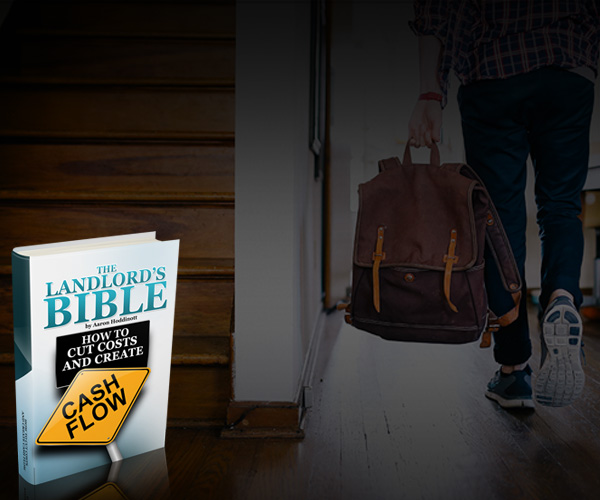It takes more than just great ideas to chisel a great startup. It’s immensely important to have strong people driving it too, and every once in a while you come across a startup with a great idea, driven by great people. That’s what we have in Franz Salzmann and Dr. Daniel Zajarias-Fainsod‘s company, Lock8.
At its heart, Lock8’s technology and offering allows bike sharing to turn the corner from being a utopian pipe dream, to a commercially viable reality. Bike sharing, like the ones deployed in New York and select other cities are urban transportation systems that preclude the need to buy or own a bike, and worry about parking and theft. Bike sharing is a city-wide deployment of bikes, where a potential user could walk up to a designated bike parked on the street, and use it to get to his or her destination. That’s the gist of it, however each location’s operating model could vary in the details.
Lock8 improves the bike sharing market by placing a lock on the bike that can be remotely activated and deactivated. This makes it possible to ‘dock’ the bike in any location of the city (as opposed to the current model for bike sharing companies which mandates the communal bikes must be docked at designated bike racks). It is also possible to remotely locate the bike. So, if you are a bike sharing customer, you can instantly locate where the closest communal bike is. And if any of the bikes in the ride sharing community were stolen, Lock8 would instantly be able to locate them.
The two entrepreneurs behind the idea are immensely qualified in their own right. Franz has a Masters from Oxford University and is an alumnus of Deutsche Bank and AXA Private Equity. His illustrious academic and professional background makes him uniquely qualified to manage a startup of such significance.
Daniel, on the other hand, who currently serves as the CTO of Lock8, is a fellow graduate of Oxford University. He is an engineer, an ER doctor, as well as a lecturer in biochemistry and biophysics. He holds seven patents under his name.
Strength and Weaknesses
Lock8’s greatest strength is that the founders are immensely qualified from a technical and business standpoint. They have partnered with companies like Foxconn, who agreed to manufacture Lock8’s equipment, which in and of itself is a Herculean achievement. Putting aside Foxconn’s constant mention in the news, it is indeed one of the largest and most selective manufacturers that counts Apple, Dell, Cisco and Google as its venerable customers. For them to take on Lock8 speaks volumes to the startup’s innovation and merit.
The timing of Lock8’s roll out is rather serendipitous. Europe’s venture into all things green, from green power to green transportation, makes the bike sharing concept a welcome ally in the urbanite push against pollution.
However, while I like the product and the people, what concerns me is the low barrier to entry in this market. There could be a patent to protect Lock8’s remote bike lock, but that is easily circumvented. My concern revolves around how quickly they will get to market and how quickly they establish themselves in market share.
First mover advantage is a double edge sword indeed, and in this scenario there is potential for it to wield both ways. As a first mover Lock8 can establish a foothold and crowd out the competition. However, as a first mover they are also at the mercy of deploying a product that is bested by a second mover who improves on their design.
This brings me to my tiebreaker. Apple recently invited Lock8‘s founders to record a podcast at their flagship store in Berlin. The session sparked my curiosity, and one has to wonder why Apple would be warming up to a startup like this. If Apple sees something in them, could it be a possible strategic partnership down the road, or even a full scale buyout? Mind you, I am not saying this is a certainty but I could see it happen given Apple’s desperation to enter new markets. It would give Lock8 the instant gravity it needs and it would give Apple a jump on the bike share market, rather than just an app opportunity down the road.
What it Takes to Succeed in the Market
For Lock8 to make a killing in this market requires one of two things to happen. First, they need a robust and un-replicable product. That is a virtual impossibility. The next best thing is to reach market share fast and to possibly integrate up or down stream quickly. Upstream is not so plausible, but downstream has some interesting options.
For Lock8 to be widely adopted, the entire system needs to be easily, and almost effortlessly, scalable. An added bonus would be to have lesser infrastructure deployed around the target city (i.e. no car sharing programs, poor transit system etc.) to support the bike share operation. In Lock8’s case, the equipment is easily scalable and the locks that fit on the bike make it its own docking station - so no additional infrastructure would be needed around town (i.e. designated bike racks). This is one of the things I like about Lock8’s solution - it’s independent.
Superior manufacturing and good quality products are essential to keep major deployers happy and to establish a strong reputation among customers. Lock8 does well in this area too. With Foxconn coming on board as their manufacturer, there is a certain amount of comfort that the product will be well built. If you’re not sure about his assumption, ask yourself if you’ve come across a poorly built Apple product…
Here is what I think…
Well, I am writing about it, so either I really hate it or I see something here that I like. And, it’s the latter. Putting aside my earth-hugging tendencies, a purely business look at this tells me that the timing is perfect and the people behind it are the right ones to take advantage of the opportunity. The concept makes sense and markets are already opening up in the US and Europe, so there is little in terms of learning curves. Potential customers have been waiting for this, and Lock8 has delivered.












